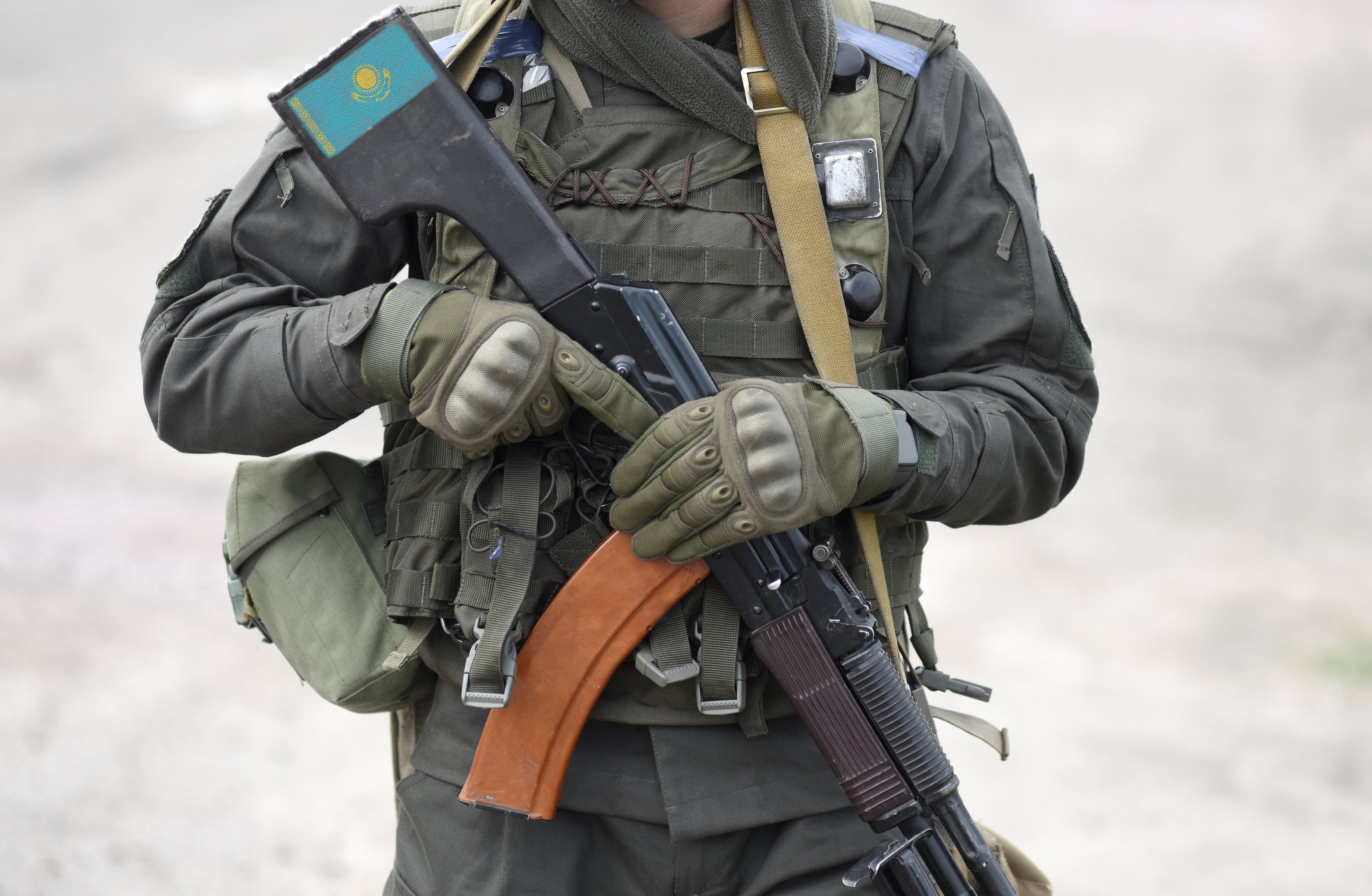
Three years after the yellow vests protests in France, fuel hikes and bad economic conditions triggered another political crisis. One of the world’s richest countries in oil & gas resources, Kazakhstan faces an unprecedented political and security crisis. Anti-corruption protesters, criminals, nationalists, Islamists, foreign agents… The intel behind the riots in the main Kazakh cities is more than opaque. Will we witness a new Crimean scenario?
Rioters vs terrorists
The protests have commenced with the two-fold soar in liquefied petroleum gas prices. The Kazakh government manages enormous fossil resources but refuses to subsidise the cost of LPG on its domestic retail market. During the first days, the protests seemed to be a peaceful complaint against the Tokarev regime due to the critical economic situation of the general population. Nevertheless, the violence spree erupted in the streets of Almaty and scenes of civil war were all over the media. While rioters channelled their anger against the elected resident Tokarev and the Nazarbaev clan, governmental officials have blamed the violence on “international terrorist gangs”, encompassing nationalists and Islamists linked to terrorist organisations.
Nazarbayev’s poisonous heritage
The ongoing unrest has its roots in the unusual events that took place in Kazakhstan in the spring of 2019. On the 19th of March, a wave of protests led to Nazarabayev’s resignations as the last president of an ex-Soviet country that remained in power since the early days that followed the desegregation of the Soviet Union. In three decades, Nazarabev took control over Kazakhstan's politics, economy and resources. He imposed his family, relatives and acolytes in crucial positions in almost all relevant areas of the Kazakh society. The country had some success in the 2000s when the United Nations studied the possibility of adding Kazakhstan to the list of developed countries. Since those times, the situation in the biggest country of Central Asia has significantly degraded.
Russia saves the day.
While in the first days of the unrest, Moscow took a step back, underlining that the Kazakh authorities should contain the situation. Kremlin’s rhetoric has suddenly changed, and the first military contingents were deployed in the hot spots across the Central Asian country.
The operation was initiated after Kazakhstan’s elected president Kassym-Jomart Tokayev appealed to the Russia-led Collective Security Treaty Organization (CSTO) for help in restoring order in the country and bringing down the armed rioters.
The CSTO is a security treaty between six former Soviet states: Armenia, Belarus, Kazakhstan, Kyrgyzstan, Russia and Tajikistan. It runs along similar lines to the US-led NATO bloc.
It is the first time the CSTO sees action. However, a precedent almost took place in 2010 when Kyrgyzstan asked for CSTO’s assistance to deal with the ethical conflict that erupted in the South of the country.
Thus, CSTO may not have the effective means to deploy such a big scale operation, and “de facto” private contractors may take care of business. Russia may not want to send its army to avoid an inference situation and therefore opts as always for the Wagner group. Independent media should soon show pictures of Wagner contractors spotted in Donbass, Syria or even Mali.
A new “Crimean” scenario?
Kazakhstan has a significant Russian minority, and Russian is the official language, the current president issuing most of his official statements in Dostoievki’s language. If the current regime fails to calm down the situation and the death toll amongst rioters increases, Russia’s operative presence will need to be maintained. Therefore, a “Crimean” scenario is on the table. Sultan Khamzaev, an elected deputy in the Russian Duma, went as far as proposing the annexation of Kazakhstan to the Russian Federation as the best south for tackling the security problem.
“There was no such thing as Kazakhstan. It was just a chunk of Soviet Union. I had to build a country, to establish an army, our own police, our internal life, everything from roads to the constitution. I had to change the minds of the people 180 degrees, from totalitarian regime to freedom, from state property to private property. Nobody wanted to understand that. My comrades from the communist party were against me. I had to train myself too...I wasn't raised with democracy and freedom of speech.”
Nursultan Nazarbayev, former President of Kazakhstan.
Focus: Franck Provost
The reputed French hairdresser Franck Provost has been indicted for money laundering and aggravated tax fraud by the Nanterre prosecutor's office. According to official documents, the tax administration has transmitted several suspicious activity reports since 2017 concerning the use of fraudulent cash register software to divert cash receipts from a network of hairdressing salons. The 75-year-old businessman, the founder of the Provalliance group, is also indicted for providing equipment and programs to commit offences and breaches of automated data processing systems.
The word on the street: Google nails Sicilian mobster
Gioacchino Gammino, 61, former boss of the Stidda mafia group in Agrigento, Sicily, was arrested this week in Spain. The operation, carried by the Italian police, benefited from bespoke intelligence provided by Google Street View and Facebook. Gammino had been serving a life sentence at Rebibbia prison in Rome when, in 2002, he managed to escape during the commotion of making a film at the prison. He fled to Spain, where he severed all ties with this home country, changed his name, started a new life and got a new job. He was the owner of a Sicilian cuisine restaurant and a vegetable store. The Italian police recognised his picture on the restaurant's Facebook page and checked the information with Google Street pictures.
Stidda carried a long and bloody war with the Sicilian mafia throughout the 1980s and 1990s. Gammino was hiding from law enforcement but maybe also from his former enemies.